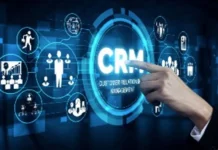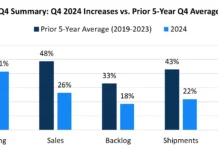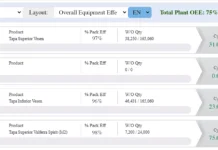by Jonathan Soucy, president
MBS Advisors
When the owner of a plastics processing company decides it is time to sell and exit the business, there generally are two overriding questions:
- How do I maximize the value of my business?
- How can I attract an acquirer that will preserve the company’s legacy AND take care of my employees and customers?
Maximizing value and attracting good buyers often go hand-in-hand. The key drivers that help you achieve these goals are regular industry topics and might already be etched in your brain: profitability, sales growth, EBITDA (equal to earnings before interest, tax, depreciation and amortization) margins, customer concentration, etc. Other drivers of value and investor interest include “curb appeal” (the organization and cleanliness of the facility), the degree of specialization and the existence of a strong non-shareholder management team.
But, what else can impact business valuation when an owner is looking to exit? And, just as important, what soft drivers help make the company attractive to a pool of larger, sophisticated acquirers? Here are a few of the less obvious aspects of a plastics business that are important to buyers and investors. Most of these can be addressed or incorporated into your enterprise with modest investment and a little advance planning.
Reviewed or audited financial statements
Many smaller companies and family-owned businesses do not need and/or are not required to produce audited or reviewed financial statements on an annual basis. This may be perfectly fine when “operating” the business, but when selling your company, audited or reviewed financial statements provide more comfort to buyers and signal a higher degree of sophistication in your organization. Reviewed or audited statements provide standardization and a higher degree of compliance with generally accepted accounting principles (GAAP). They also minimize accounting mistakes/irregularities that likely will be uncovered during due diligence. An acquiring entity that is more confident in the strength and validity of the financial results is more likely to make an aggressive offer for your business.
Quality certifications
ISO/TS certifications are common in the manufacturing sector today. However, there still are many smaller companies that, despite having excellent quality, have not pursued an official quality certification. ISO and TS certifications are very important to larger strategic acquirers because they themselves are likely ISO/TS certified and know that post-acquisition integration will be easier and less costly if the target has the same credentials. Furthermore, if your business is focused in one particular industry, obtaining and maintaining the appropriate certification (TS-16949 for automotive, ISO-13485 for healthcare, ISO-9001 for general industrial) is a signal that your company is a serious player.
Detailed and defensible forecasts
Companies with a robust pipeline of measurable new business are universally more attractive to acquirers and investors of all shapes and sizes. Many custom injection molders “guestimate” future revenues and profits based on historical trends. This type of forecast is better than nothing, but definitely not optimal. The most credible forecasts are those in which the company has gathered monthly volume projections (ideally from the customer) for each active part number. Program launch dates, ramp-up periods, seasonality and end-of-life data should be built into the model. Companies that can forecast on a part number (or SKU) basis and provide the supportive data will universally attract larger and more sophisticated buyers and typically command higher valuations.
Raw material pass-throughs
Acquirers always are interested in customer contracts/agreements and the ability of the molder to pass on potential resin price increases. The more a company’s profit margins are insulated from raw material price fluctuations, the more comfortable a buyer or investor will be with future earnings. This translates to a lower risk profile and higher valuations. There are various tools that injection molding companies use that can mitigate raw material pricing risk. Some of these include customer-negotiated raw material contracts, supply agreements with periodic price adjustments based on raw material price movement, financial hedging (commodity resin), customer-consigned raw material and several others. The more your company can protect itself and its profits against resin price increases – even if this means sacrificing excess profits during deflationary periods – the more buyer/investor interest it will generate, and your valuation multiple likely will increase.
Owner succession/transition
Management transitions can be extremely taxing on any company, especially a company that has just undergone a change-in-control transaction. So, buyers and investors of all types strongly prefer companies that are likely to have stable management through an acquisition and long-term transition. If you are the owner and actively involved with your company’s day-to-day operations, it will be beneficial if you have a succession plan in place involving the next generation of management. This still is the case even if you plan on staying several years following a deal; acquirers understand that owner intentions/plans can change soon after a deal is completed and harbor concern over the loss of “know-how” if/when former shareholders leave. So, to the extent buyers and investors are comfortable that the company’s key human capital will remain intact after an acquisition, the more they will be excited about the investment and the more they should be willing to pay for the business.
Crisp explanation of unusual events
All businesses have exceptions, adjustments, one-time occurrences and temporary setbacks. For example, if your business had a precipitous drop in revenue two years ago, every acquirer will want to understand the cause and the details surrounding the event. Was it a one-time occurrence or will the issue appear again in the future? Was it the loss of a customer or just a temporary gap in orders? Buyers will want to assess the risk of past anomalies impacting the future results of the company. Being proactive and prepared to clearly explain unusual circumstances can mean the difference between a nervous and overly cautious buyer and an acquiring entity that is confident in the business and impressed with management’s understanding of past challenges or events.
In conclusion, there is a lot for plastics company owners to keep in mind as they plan their exit. No company is perfect, and no merger and acquisition (M&A) transaction is perfect. But, there are a lot of small and inexpensive tweaks that can make a big difference in valuation. And, some of these tweaks could be the difference between finding and attracting an OK buyer, a good buyer or the BEST buyer.
MBS Advisors offers exit planning consulting for molders and other plastics processing businesses. We leverage our experience as former injection molding company owners/operators … and also use the knowledge and experience gained during our 102 (and counting) successful plastics industry M&A transactions.
More information: 413.584.2899 or www.mbsadvisors.com





